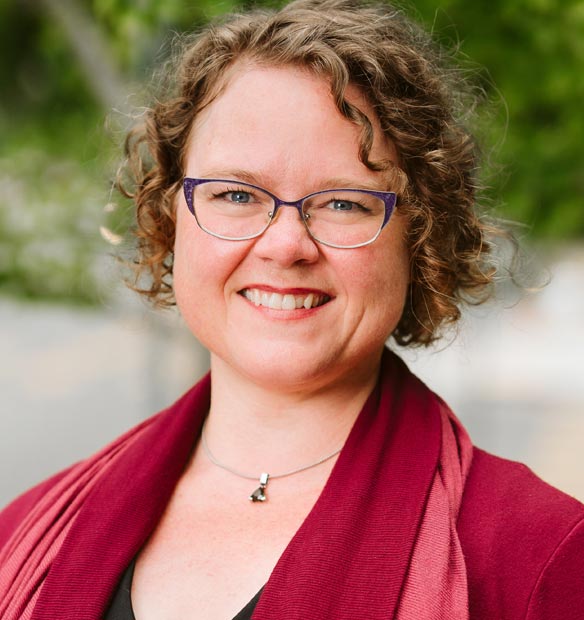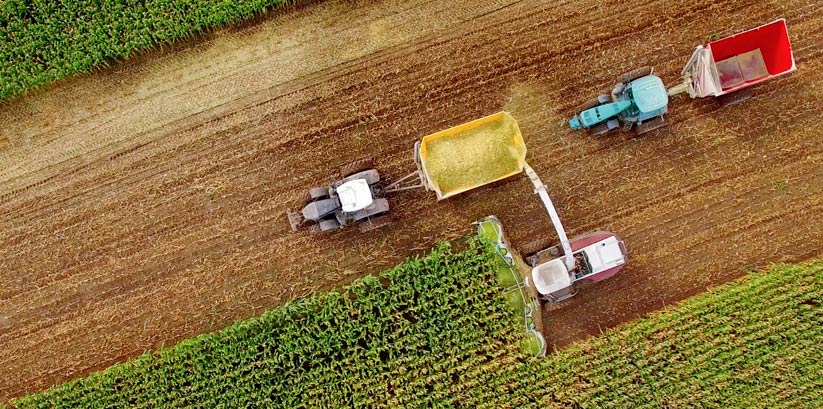Impact Highlights
Cultivating Systemic Change
A Circular Economy, Shareholder Advocacy and Food Safety
By Sarah Green, CFP®, Director, Impact Investing
and Matthew Gatt, CFP®, Lead Advisor
As a society, we are having significant conversations about justice, equity, and sustainability for people and our shared resources. Many of us want to engage in ways that support a more just society and a more sustainable economy. As individuals, we can act in small and big ways in our daily lives to support a more circular economy that benefits all stakeholders – one that benefits more people and leaves fewer behind; one that produces good and creates less pollution and waste. If we collaborate to influence and guide corporate activites, we magnify our impact, and create more enduring change.
To frame our impact investment approach and its component investment choices, we like using the concept of a circular economy. The concept helps articulate restorative and regenerative business practices that benefit all stakeholders.
 Circular Economy
Circular Economy
A circular economy is an economic system that is restorative and regenerative by intention and design. For us, it is a lens into which corporate activities we should support, which to engage, and which to avoid.

From the Director of Impact Investing
Investor Tools for Change
Campaigns such as the ones discussed in the coming pages, founded on client capital and part of a larger constellation of industry partners, create pressure, drive change, and actively monitor commitments made by companies. This case study is an example of how real change is possible with time, persistence, and collaboration.
As a firm, we are engaging with our network to help apply this methodology more deeply to other social issues such as gender and racial equity. We recognize that transitioning to more restorative and regenerative business practices takes time and requires collaboration and tenacity. Together, on behalf of our clients and alongside our industry partners, we intend to be a driving force for change toward a resilient, sustainable economy.
With gratitude,
Sarah Green, CFP®
Director, Impact Investing
Engagement Stories
Cultivate Systemic Change with Corn Flakes
As investors, we have powerful tools to come together in support of a circular economy. Shareholders can influence corporate management across a range of issues, from the ways companies treat and hire workers to how they grow, harvest, and package food. Breakfast cereals such as Corn Flakes or Cheerios might seem innocuous products in our pantries, but the grain production that supports the cereal market has an enormous impact on the health of our soil and the pollinators on which our food production system thrives.
As an investor, how can your portfolio play a role in ensuring a safe ecosystem? In today’s Impact Highlight, we focus on shareholder efforts to create change at General Mills and Kellogg’s, the two companies that produce nearly 60% of the breakfast cereal consumed in the United States.
The Dynamic Duo: Kellogg’s & General Mills Commit to Change
At North Berkeley, we are proud to be part of a broader investor coalition pursuing the reduction of pesticides in the food supply, and concomitant protection of ecosystem health. Excessive pesticide use threatens regenerative health of the soil, human health, and also threatens the world’s pollinators. In our case study, shareholder resolutions, dialogue, and data drove a progression of positive change within both Kellogg’s and General Mills, two of the country’s top 30 food producers. Those hard-won commitments to change will ultimately benefit us all.
Shareholder Resolution: The Power of Many Voices
Our nonprofit partner, As You Sow, first filed a shareholder resolution with Kellogg’s on the subject of the pesticide glyphosate in 2017. Glyphosate is a pre-harvest drying agent used by Kellogg’s to reduce weeds in its fields, but which is now known to cause cancer. This realization led to an ongoing dialogue between investors and the company during which investors asked the company to reduce the use of glyphosate by producer farms; in particular, investors asked the company to eliminate the practice of applying glyphosate just before harvesting grains.
While grains are generally self-pollinated, pesticides affect the entire environment, and glyphosate is one of many that disrupts bee health. More than 40% of global pollinator populations are considered “highly threatened.” Yet, 75% of global food crops rely on these pollinators for reproduction. Industrial food production ironically, therefore, relies on pesticides in the cultivation of crops that harm the pollinators they need to pollinate their crops.
There is a growing scientific consensus that certain pesticides, including neonicotinoids (neonics) and glyphosate, are contributing to a massive pollinator die-off, which jeopardizes food security and ecosystem diversity.
Green Century, one of our mutual fund partners, joined the Kellogg’s resolution in 2018 and noted, “Toxic pesticides are killing bees and other wild pollinators, which are essential to global food production.” They had joined in a second resolution with As You Sow as well, directed towards General Mills. Following several years of dialogue, that company committed in October 2019 to explore regenerative methods with the Western Canadian farms that supply the bulk of their oats, and has an explicit goal to get one million acres farmed regeneratively by the end of 2030.
Data: What You Measure, You Will Change
In 2019, data drove the conversation further with Kellogg’s. As You Sow published the “Pesticides in the Pantry” scorecard, examining what fourteen major food manufacturers are currently doing to address the pesticide problem. Most companies did poorly, scoring just a few points out of a possible of 30. General Mills was the top scorer at 18; Kellogg’s tied for 3rd place with 8. Clearly, the food industry needs more clarity and better metrics to satisfy investors that companies are taking responsibility for their agricultural supply chains.
In the fourth year of their campaign, As You Sow filed another resolution for the 2020 Kellogg’s shareholder meeting pushing the company to collect data and report information on supply chain pesticide use. As You Sow withdrew the resolution after the company demonstrated significant new commitments. Four years of engagement produced a commitment by Kellogg’s to phase out the use of glyphosate as a pre-harvest drying agent in its major wheat and oat supply chains. By 2025, the Corn Flakes in your pantry will no longer contain this harmful pesticide.
The “breakfast cereal awakening” is one example of how we co-create systemic change to cultivate a more circular economy that benefits all of us.
Timeline of Investor Engagement
Transitions take time. In the case of Kellogg’s, it was a four-year engagement that led to a significant commitment by the company to improve food safety.

Interested in learning how to create impact with your investments?
If you are looking for guidance around socially responsible investing or would like us to review your current portfolio, please reach out to us for a free consultation.
Call (510) 528-5820 or email info@northberkeleywealth.com
This commentary on this website reflects the personal opinions, viewpoints, and analyses of the North Berkeley Wealth Management (“North Berkeley”) employees providing such comments, and should not be regarded as a description of advisory services provided by North Berkeley or performance returns of any North Berkeley client. The views reflected in the commentary are subject to change at any time without notice. Nothing on this website constitutes investment advice, performance data, or any recommendation that any particular security, portfolio of securities, transaction, or investment strategy is suitable for any specific person. Any mention of a particular security and related performance data is not a recommendation to buy or sell that security. North Berkeley manages its clients’ accounts using a variety of investment techniques and strategies, which are not necessarily discussed in the commentary. Investments in securities involve the risk of loss. Past performance is no guarantee of future results.

